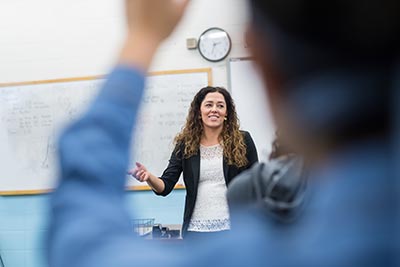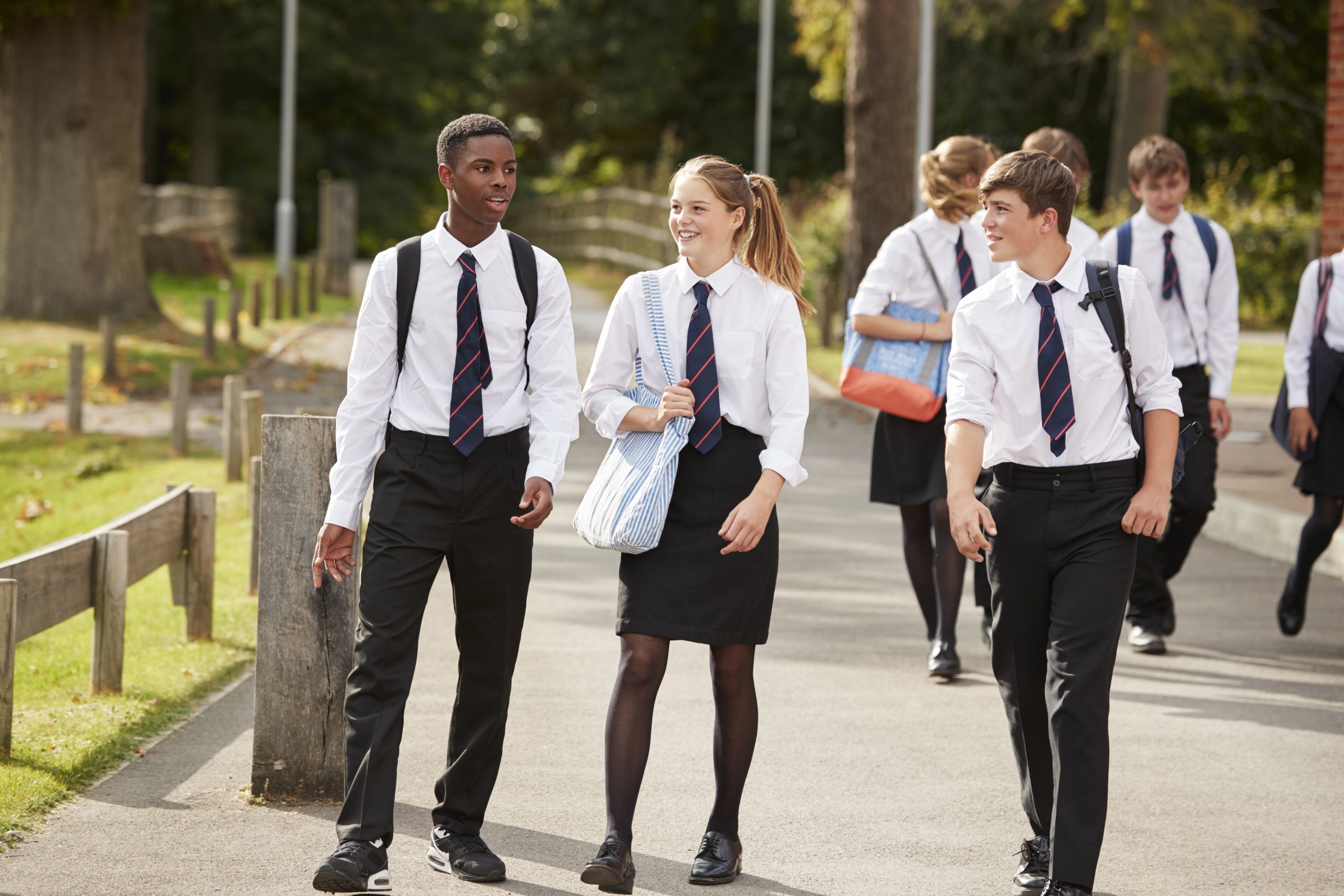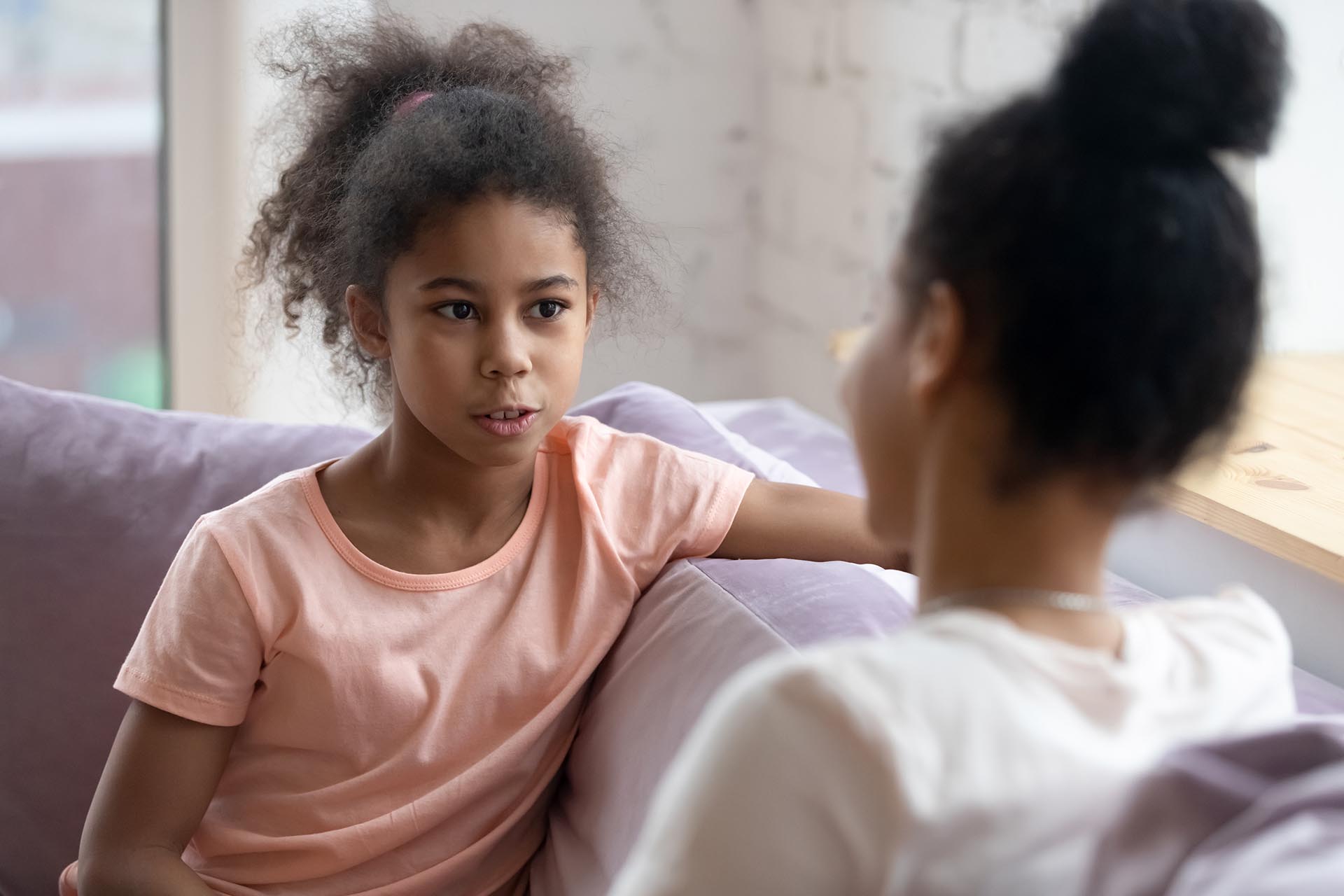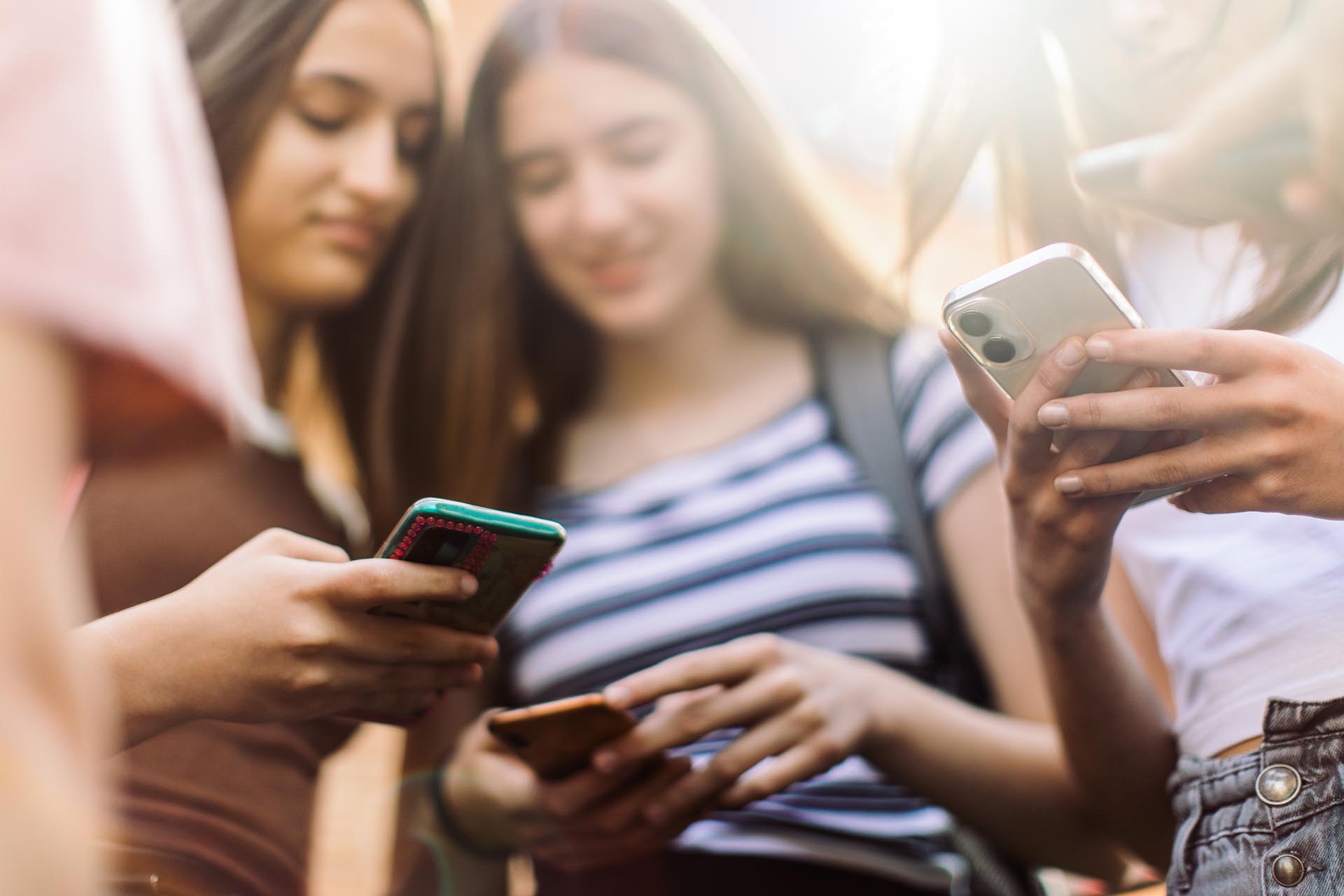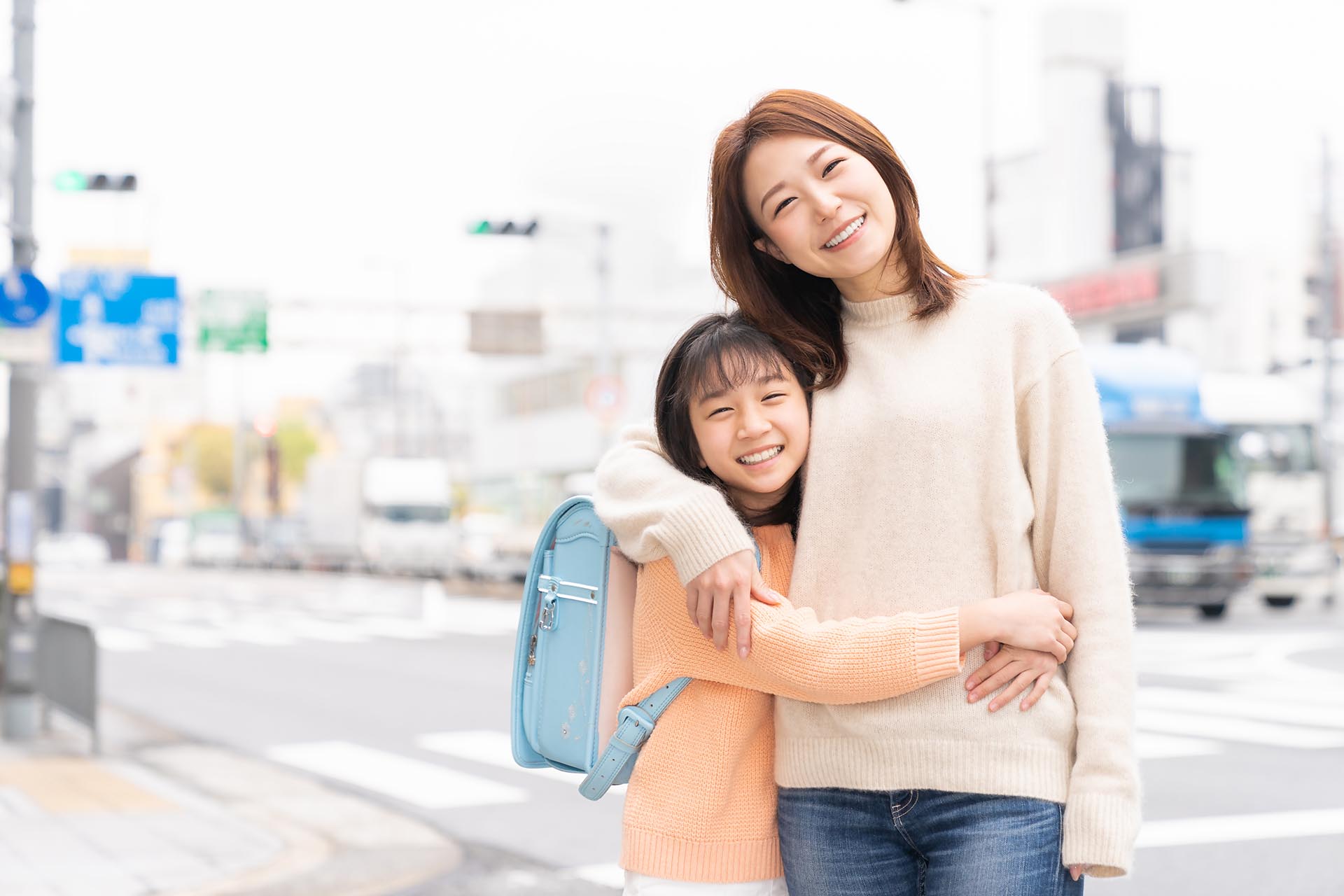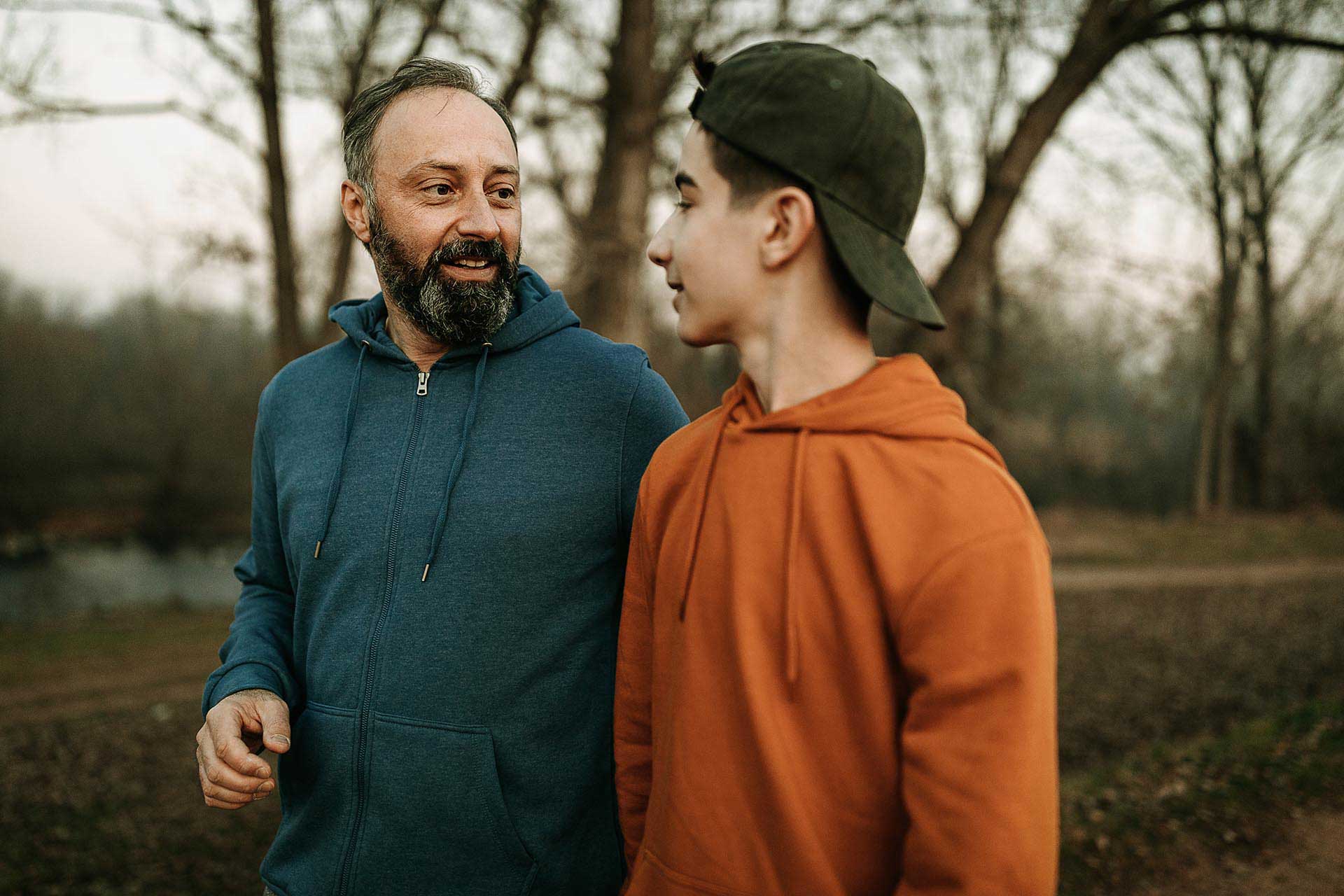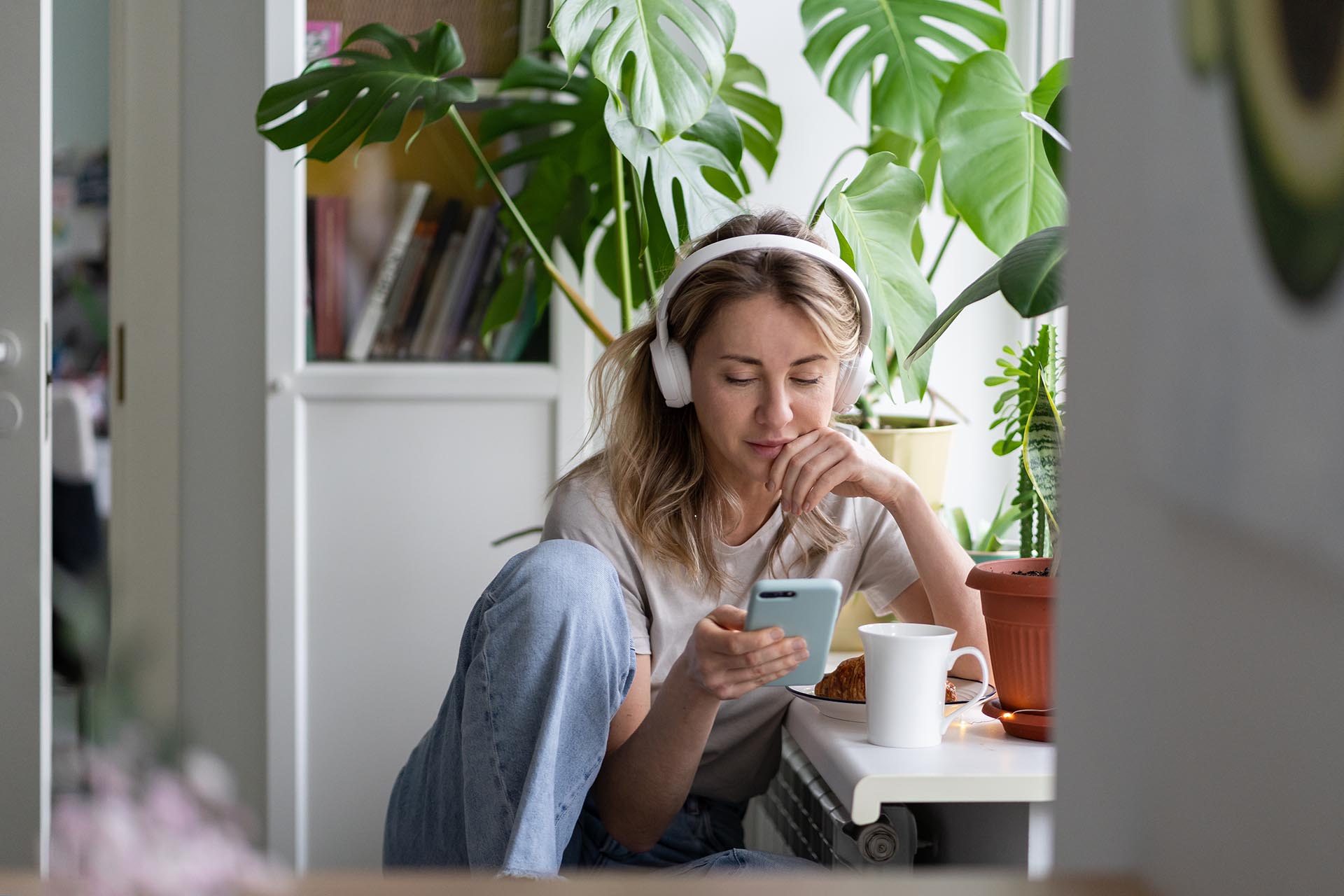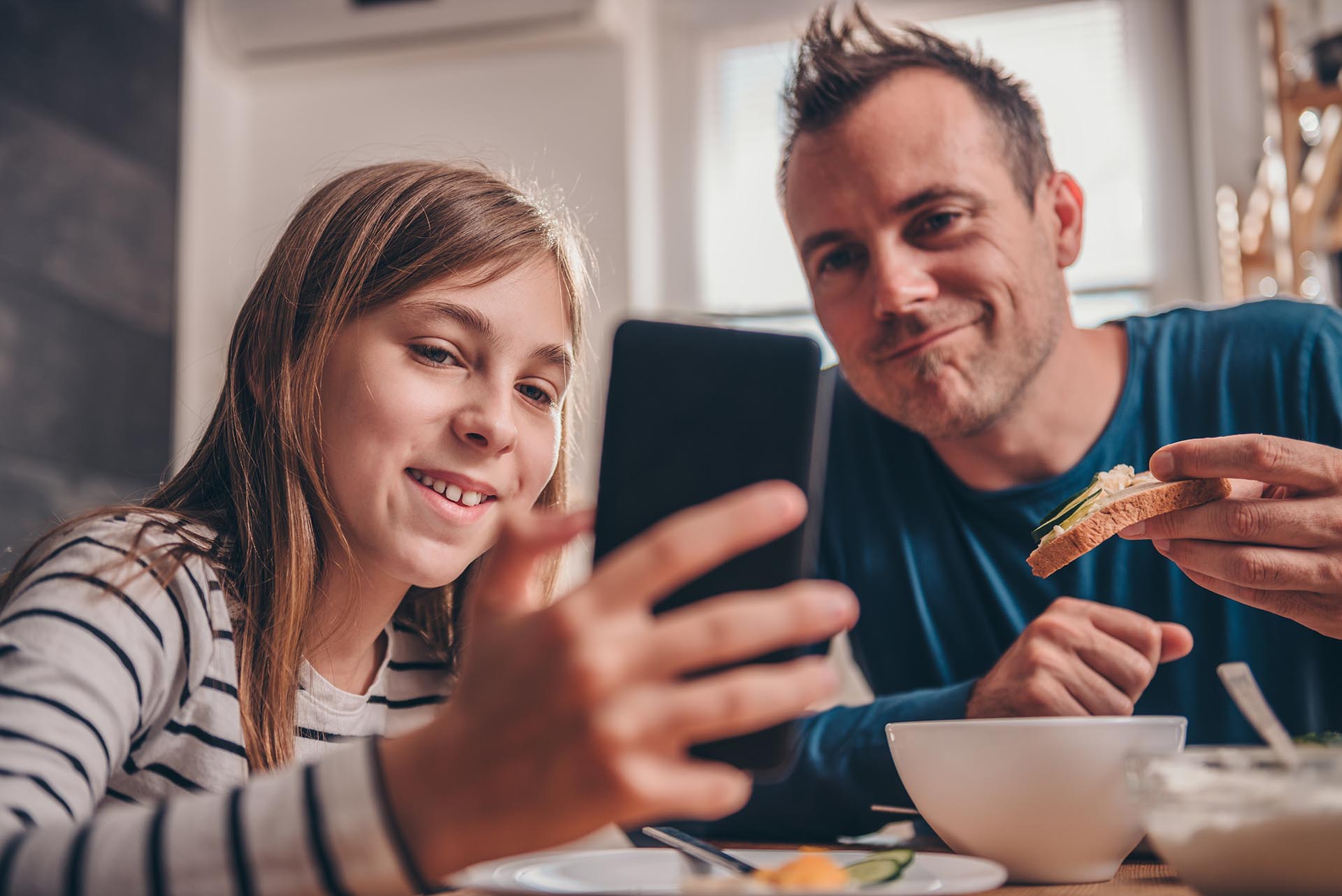- About
Q. What education do you offer parents/families?
We regularly run two online webinars (‘Talk to Me First’ and ‘Let’s Learn Together’), both designed to support families to learn together, and for parents and carers to gain skills, knowledge and confidence to talk to their children and be that strong voice at home.
‘Talk to me first’ is for parents and caregivers only. In these sessions, we give practical tips on how to kick-start (and continue) conversations about puberty, body safety, consent and other topics, depending on the age of the child. We give you insights on what to say, when and how to keep control of the conversation. How to answer questions in an age-appropriate way, and what other methods you can use to make sure your child has access to age-appropriate, accurate information from a trusted source.
Our ‘Let’s Learn Together’ webinars have parents and children sitting together in the privacy of their own homes using our ‘turn and talk’ method, where our presenter guides families through the topics in a controlled, age-appropriate and relaxed way. You and your child talk about the topics to the level which fits your family setting, and of course, these conversations can be continued after the webinar has concluded. Our presenter models best-practice language and approach, and all of our ‘Let’s Learn Together’ webinars are age-graded (ie only have children of a similar age in the session) as well as sensitive to individual family needs in terms of cultural and religious diversity.
You can find out more about them here.
Q. Aren’t some of these conversations that only parents should be having with their children?
We are a service that delivers classroom programs in school, so our answer is that we think both is essential: for students to have at least one trusted adult in the family that they can talk to and receive information from, as well as attending programs at school. We know that some children don’t have that person at home or even in the wider family to learn from, which is why classroom-based programs are so important. This education has a protective effect, especially when it comes to safety, so it’s important that young people get accurate, age-appropriate information somehow.
But SEA is pro-family and we see how much better young people do – physically, psychologically, emotionally and socially – when they have a supportive parent or trusted adult that they can talk to, and who supports them as they grow and develop across the years. We also understand that parents and caregivers are the first – and most important – educators of their children. Children and young people want to hear values and beliefs from their parents around these topics, and also want to feel confident they can go to them for help, support and guidance. We encourage parents to be open and curious in conversations with their young people so they can build trust and be one of the ‘go to’ people for their child. Sometimes parents feel they could benefit from some support themselves, to increase their own skills and strategies in an effort to better support and educate their children, and we endeavour to provide help and assistance with this where we are able, for example with our ‘Talk to Me First’ parent webinars.
Q. How can I find a good book or other resources for my child?
You can check out a list of our suggested resources on our primary-aged and secondary-aged pages. We have lists of books that parents might consider passing on to their children, or reading together. Please make sure you check any resources first, to make sure they suit your family setting.
Q. What age is the right age to talk about sex?
It’s hard for us to give an age that is the ‘right’ time to tell a child about sex. Some children know something or all about it when they’re very young (5 or younger), others around 8 or 9, and others around 10-12. Children vary in terms of maturity and curiosity, and you know your child best. Sometimes they just need a simple explanation and for most people the context would be how a baby is made, and so a lot of detail is not necessary and can be overwhelming. Remember, they will hear things from other children, older siblings, cousins etc. They will possibly become confused by what they hear (and even see online). It’s always better for them to receive a simple, matter-of-fact statement about this topic from a trusted adult, even if it feels awkward. And most importantly, you’re showing them they can come to you and talk about even embarrassing or uncomfortable things if they need to.
For more information and tips, find out when we’re running our next ‘Talk to Me First’ parent webinar,. Additionally, you can read more about this in our factsheet on why parents need to talk to their children about bodies, puberty and reproduction here.
Q. I think my child is too young – can I wait to talk to them about these topics?
Children who are left ignorant can be made vulnerable to other influences, so a safe adult who is willing to talk with young people about these topics (whether in school or with a parent at home) can have a protective effect. If parents delay or avoid these conversations, it means when that child hears information from other people or online, they can take on ideas and information that is not good for their development, is not age-appropriate, or that might be inaccurate and therefore confusing.
Some parents think that their child is too young because they haven’t asked any questions at home, and it’s important to remember that these two things don’t necessarily go together. Having said that, you know your child best, and we think there’s nothing wrong in saying to children that they don’t need to know everything all at once and right now. But if they are asking questions, they do need to hear something from you rather than being ignored or fobbed off. You can choose not to tell them everything, but they need to hear something to know that they can come to you with questions or worries. Not telling them truthful information or evading and putting off conversations can do harm. Don’t forget books – they can be really helpful for the more difficult chats.
At a basic level, parents who avoid children’s questions are sending the message ‘these things are not talked about at home’, and this can leave them vulnerable to outside the family influences, which have very loud voices: other children, other adults who might not have your child’s best interests at heart; the internet, pornography, social media and popular culture.
Q. My school doesn’t offer puberty education – what should I do?
It is your right as a parent/caregiver to talk to your child’s school about this. It is compulsory for Prep to Year 10 students in government schools to receive this type of education – not just puberty topics but all the other topics that are listed for each year level in the ‘‘Catching on early‘ document and ‘Catching on later’ for secondary. Independent schools have their own curriculum in this area, and you can certainly check in with a school to see what they offer across the school years. We know that the best results happen when schools and families are working together for the support of a child’s well-being, safety, health and happiness.
Q. Do your primary classroom programs include gender identity education?
As company founders, Justine and Jenny have decided that our primary classroom programs will stick to the basics across the Foundation (Prep) to Year 6 levels. What this means is we don’t cover gender identity and associated topics in the primary years. We do talk about gender stereotypes and how they can be limiting but we don’t have any content on gender identity in our programs. There are two reasons for this. The first is that we know most parents tend to prefer to have these conversations – or not – within the family at the time they consider is right for their child. For some families, these conversations are very relevant but for others not so. Secondly, our program is crowded, and these are topics that require time for nuanced discussion otherwise they can be confusing for students. If a student asks a question or brings it up, our educators will give a simple explanation, eg ‘what does trans mean?’ because we are a respectful and inclusive service however at the primary years, gender identity is not a focus of our programs.
Q. When should I start talking to my child about puberty?
Puberty is beginning earlier with some children starting as young as eight years old. It’s important to speak to young children about the natural body changes of puberty before they experience them so that they can be prepared. We recommend parents start talking to their young people in Years 3-4 about puberty with a simple introductory conversation. And it’s not just puberty that parents need to talk to their children about; there’s body safety, correct terms for private and reproductive anatomy, consent, respect and where babies come from (human reproduction) as well. You know your child best, and whether they are someone asking a lot of questions or not. When a child doesn’t ever ask questions, it can be more challenging for parents as it’s important to make sure they have access to accurate, age-appropriate information – books can be great in this instance. Check our resources here.
Q. I don’t want to talk to my child about these topics. Is it okay to leave it to school to cover the content?
Sex education at school should always be in addition to, rather than in replacement of, an ongoing conversation with a parent or carer at home. It is largely in the home where young people develop their values, so teaching the importance of consent and understanding – even before your child knows about sex – will help your young person to advocate for themselves in terms of emotional and physical safety, and teach them about their responsibility to others. Parents and caregivers are the earliest, strongest and most enduring influence over how a young person grows up. Without parent voices in the mix – sharing values, expectations and, at times, factual information – young people can be left without the support they need right through school. If they can’t talk to a trusted or safe person at home or in the wider family, then they are left vulnerable to other influences. They will definitely hear – and see – things outside the family so it’s essential they have someone they can talk to at home.
Q. What does ‘body safety’ mean?
Body safety means empowering young people with skills and knowledge that help them advocate for their bodies and reduce the likelihood of experiencing sexual abuse or harm. Some people call it ‘protective education’, and it’s an important part of children and young people learning about their bodies, their rights for themselves and their responsibility to others. You can find resources about body safety here (for primary-ages).
Q. Are there any online resources for helping with screen use and risks online?
Think u Know offer age-appropriate resources for parents to help keep children safe online.
You can also report abuse, suspected abuse or inappropriate online communication to the Australian Centre to Counter Child Exploitation.
We also recommend the following resources:
Q. What is your position about misinformation that can circulate?
Making sure that information sources are accurate and reliable is important. We know that these days there is a lot of misinformation about. Sometimes it occurs through carelessness, but sometimes it circulates from people who are deliberately trying to create fear, suspicion and distrust. These days, young people use the internet and social media (TikTok, Instagram, Reddit) as well as word-of-mouth to inform themselves, in addition to whatever education their school or parents might provide. We need to be guarded against misinformation and help our children develop critical thinking skills that enable them to identify and challenge misinformation, so they don’t believe everything they hear or see. There is some accurate and valuable education happening across social media but there is also wrong information being provided and this misinformation can be confusing, damaging and dangerous.
Over the last few years, there have been campaigns of misinformation intended to deliberately discredit health and education services, so we encourage people to inform themselves about how to distinguish between credible information and unintentional or deliberate circulation of misinformation. This article has some good tips on looking at credibility of news sources.
Parents should check in with their children’s school about programs, and what is covered. Parents have a right to ask questions, and to check with the services themselves to get more information. Many of us won’t provide a full outline of our lesson plans because that is intellectual property, but you will find that all services are covering similar topics at both primary and secondary schools, because when it comes to talking about puberty, anatomy, reproduction – the basic topics – there’s not much that has changed.
Q. Do you do phone consults? I just need to talk things through and get a bit of advice.
We’re always happy for people to ring the office or email us (links here) for a chat or help finding a resource. For people who might need a longer conversation, please contact us at info [at] sexeducationaustralia [dot] com [dot] au for more information about a more formal chat.
Q. Are you an inclusive service? Do you talk about diversity in the family and other forms of diversity, such as gender identity and sexuality?
Whenever we talk with students in the classroom about families, we acknowledge the different ways that families can be. For example, families don’t always have a mum and a dad raising the children; there’s a lot of diversity in who can be looking after the children, including same-sex parents. Students are aware of this, and it’s important this is acknowledged in the classroom for reasons of inclusivity. When we are talking about how babies or children ‘join’ families, depending on the age of the students, we include the concepts of adoption and foster care, as well as IVF/Assisted Reproduction, surrogates and donors. There are many children in classrooms for whom this represents their reality, or someone they know.
When it comes to gender identity and content about sexuality, it’s a little less clear-cut. We do include content on gender stereotypes (to challenge those and to complement the Resilience, Rights and Respectful Relationships programs that are run in Victorian government schools) because gender equality is crucial to tackling gender-based violence, and violence in the home. We don’t talk about gender identity in primary schools, though, because we know these are conversations parents tend to want to have with their children at home. For some families, these chats about gender are more relevant than for others, and we leave it to parents to choose to speak with their children – or not speak with their children – about these topics.
The schools we deliver our student programs in are diverse: government and independent; faith-based and secular; diverse in terms of linguistic and cultural backgrounds.
Q. My child is thinking about coming out. I wanted to check that in your classes, inclusive language will be used.
For primary-aged children:
In our primary programs, we use inclusive and clear language. When we talk about families, we don’t make assumptions that all children come from a family with a mum and a dad. We talk about how families can be diverse in terms of who is bringing up the children; sometimes it’s single-parent families, grandparents bringing up children, sometimes there’s two mums or two dads, or multiple parents including step-parents etc. In addition, when we talk about attraction., we make the point that some people are attracted to people of the opposite sex and some the same sex. We state this in a matter-of-fact and non-judgmental way so that young people understand that everyone has the right to be respected and treated with kindness regardless of who they might be attracted to in life (if anyone at all).For secondary-aged students:
All our classes are inclusive and non-judgemental when it comes to talking about human sexuality and identity. We are mindful of using inclusive language when we talk about human sexuality an identity in our secondary programs. This includes a discussion of what sexual orientation and gender identity means and the importance of respect and kindness to everyone regardless of who they are attracted to or how they identify.Q. How long has SEA been running?
SEA has been running since 2011, but founders Jenny and Justine were working in the area of sexuality and relationships education for several years before then. They established SEA because they were determined to continue to deliver quality, age-appropriate sexuality and relationships education to Australian students. Over the last decade and a bit, the SEA team has delivered programs and information to tens of thousands of school students and parents, seeing first-hand the real difference this type of education makes in individual lives.
Q. What grade is sex ed taught in Australia?
Sexual education is taught across Australian schools from preschool to Year 12, but there is no overarching consistency in terms of curriculum, approach and how comprehensively the topics are taught. Some schools are doing a great job while others may not even offer it. For most schools, they will run a puberty program at Years 5 & 6. Sometimes they will run a program at Year 3 & 4.
Q. Is there an Australian curriculum that you follow?
Our programs align with the Victorian and Australian Curriculums, and support schools to meet a number of Child Safe Standards (you can read more about the standards here).
Q. Do you visit schools and deliver face to face?
Q. What do you have to offer parents/caregivers?
If schools have booked a classroom Living & Growing Program (Prep to Year 6) or one of our secondary sessions, we recommend they also run an online Parent Information Evening ahead of time. In this session, parents and caregivers learn what will be covered in the school program, as well as receive practical tips and strategies on how to be the ‘go to’ person for their child, how to answer tricky questions, content about keeping safe online and post-presentation resources for their family.
Schools can also book an online ‘Let’s Learn Together‘ session (we also regularly run these family webinars for the community). ‘Let’s Learn Together’ sessions have parents and children sitting and learning together at home, see more info here). We also regularly run another community webinar, ‘Talk to Me First’, which supports parents further in having these conversations at home with their children. In this parent webinar, we share content about puberty, body safety and consent, and how to talk about these topics with children in age-appropriate ways.
Q. Who do you employ as educators?
All our educators are specially trained by us to deliver our programs, and while most are qualified teachers with years of classroom experience, others come from different areas of working with young people. All are employed because they are excellent presenters who connect with children and young people and have the highest standards in the classroom. All our educators and presenters have either a current VIT (Victorian Institute of Teaching) registration or a WWC (Working With Children registration).
Q. Does SEA have an affiliation with any religious or political positions?
No, SEA is an independent organisation. We are non-political and non-religious, and describe ourselves as a good ‘middle of the road’ service. We are contemporary and inclusive but always keep in focus the facts and the basics rather than following trends. You can read our positioning statements here.
Q. What programs do you offer schools?
You can view our primary school programs here and secondary school programs here.
Q. How much do your programs cost?
Our programs are costed on a per-grade basis at primary level, and on a student-number basis for secondary. We don’t charge per head. Our costs are in line with other industry organisations, and you can receive a quote by contacting bookings [at] seaprograms [dot] com [dot] au
Q. How do I make a booking?
To make a booking, email us at bookings [at] seaprograms [dot] com [dot] au or fill out the form here.
Q. Do you offer modified programs for Catholic and other religious schools?
Yes we do. Please get in touch with us at bookings [at] seaprograms [dot] com [dot] au
Q. Do you offer staff development?
Yes we do. Please get in touch with us at bookings [at] seaprograms [dot] com [dot] au
Q. Do you offer university programs?
Yes we do. Please get in touch with us at bookings [at] seaprograms [dot] com [dot] au
Q. What do you have available online for my school?
We can deliver our programs online to remote and regional schools, where our educator livestreams into the classroom.
Please get in touch with us at bookings [at] seaprograms [dot] com [dot] auQ. Do you run consent programs?
From 1 January 2023, all Australian students in government schools receive education on consent, and we have age-appropriate consent key messages within all of our primary programs.
At the secondary level, we offer a specialised whole-year-level presentation called Consent: On the Same Page. This is a presentation delivered face to face and is inclusive for all students in Years 9-12, regardless of family background, religion, ability, race, gender identity and sexuality. This presentation was developed in consultation with young people and designed to be positive, non-judgement and above all, practical and helpful to all young people despite their experience: someone who might experience sexual harm as well as those who might cause sexual harm to others. You can read more about this presentation here.
Q. Do you offer education on friendships?
We can deliver education on friendship at the primary level. For more information, please contact the office at bookings [at] seaprograms [dot] com [dot] au
Q. Do you offer education on healthy relationships?
Our primary programs – Prep to Year 6 –contain key messages around respect to complement the Resilience, Rights and Respectful Relationships program, now current in government primary schools. As mentioned above, we can deliver a session on friendship at the primary level, in which students learn about how to manage friendships, how to make sure they are respectful and healthy and how to stand up for themselves and manage conflict. These concepts are building blocks for understanding what healthy relationships are later in life. We also include key messages on respect and empathy in all our primary programs.
In secondary school, we can deliver a presentation called Healthy Relationships. This focuses more explicitly on healthy relationships that might be romantic or sexual, how important respect is, and how it feels and looks like, how students can look after themselves and others, what the laws are in terms of coercion and control, and rights and responsibilities around romantic and sexual interactions. Book a Healthy Relationships presentation for your school here.
Q. How do I get a job with you?
Keep an eye out for job ads via our social media and website. Our educators are extraordinary presenters with an excellent and proven rapport with young people, and they are passionate about this area of work. If you fit this description, we’d love to hear from you when we are recruiting.
